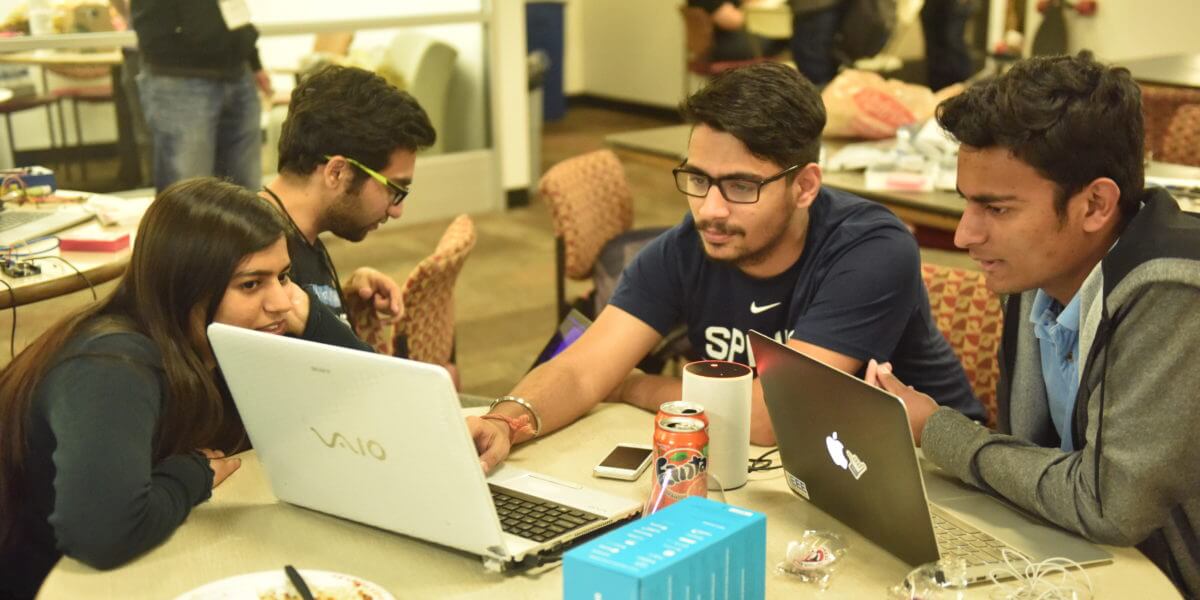
Students review their work at the student-run hackathon organized by USC IEEE. Photo Credit: USC IEEE
Last month, USC’s student branch of IEEE (the world’s largest electrical engineering professional organization) hosted Hack IoT – the west coast’s first student-run IoT-hackathon. With the rise of autonomous vehicles and smart-home devices, the Internet of Things (IoT) has become one of the most influential new fields in the world today. In fact, IoT touches on many more aspects of our lives than people might realize. Everything from energy management and environmental monitoring to manufacturing and infrastructure management, and much more, is already being changed by this technology.
Most hackathons these days focus on software, as hardware hackathons require many expensive devices and components. Unfortunately, students don’t always have the resources necessary to get experience in the field. Some of the IEEE board members are involved in the IoT research on campus and decided to use their knowledge to give that hands-on experience in IoT to their peers.
"Hardware Hackathons require many resources and we could not do this without the help of our sponsors, especially the huge support from the EE department and Viterbi." - USC IEEE vice chair Ling Ye.
The electrical engineering department provided personnel support as well as financial help. "USC Viterbi has been at forefront of the Internet of Things, from our researchers and faculty who have been developing relevant cutting-edge technologies to having one of the first regular courses on IoT anywhere in the world launched recently in our Ming Hsieh Department of Electrical Engineering,” said professor Bhaskar Krishnamachari, who advised and provided mentorship. “The first-ever IoT Hackathon put on by USC's IEEE branch is a truly laudable effort, organized by and harnessing the creative energy of our brightest talents: our brilliant, self-motivated students."
The two-day event, which was attended by 70 students from USC, UCSD, ASU, and UCSB featured eleven student projects all built over a 24-hour period. The student hacker teams got a chance to not only code, but also to create tangible products from scratch. USC IEEE provided all of the tools and equipment to participants free of charge. Internally, the group’s efforts were supported by the USC Viterbi School of Engineering, The Center for Cyber-Physical Systems and the Internet of Things, and the Ming Hsieh Institute. Additional industry support was provided from Cypress and Sparkfun Electronics.
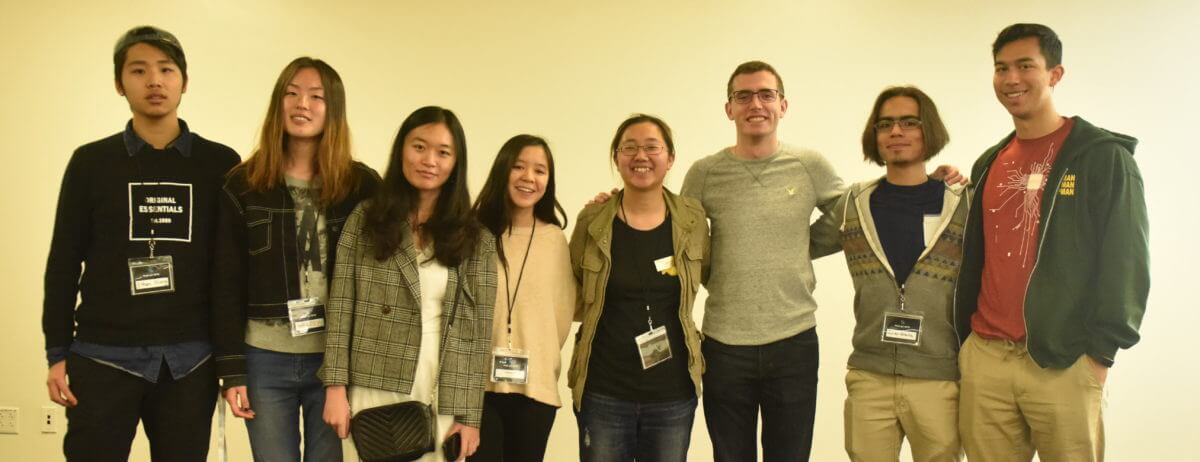
Organizers from USC IEEE at last month's student-led IoT Hackathon
At the end of the event, the teams each had a chance to present their work to a panel of judges made up of representatives from USC and local industry. All presentations were judged on Technical Difficulty, Creativity, Usability, and Business Potential and $760 worth of prizes were awarded to the winners in the form of drones with HD cameras, Amazon Echo Dots, Bluetooth headphones, and Particle Photons.
“Hackatons are an important part of the ecosystem and the USC IEEE Hack IoT event was no exception. We saw students push themselves over a 2-day period to learn new skills and push each other to innovate,” said judge Shaun Arora, co-founder and managing director of hardware accelerator Make in LA.
The Winning Projects
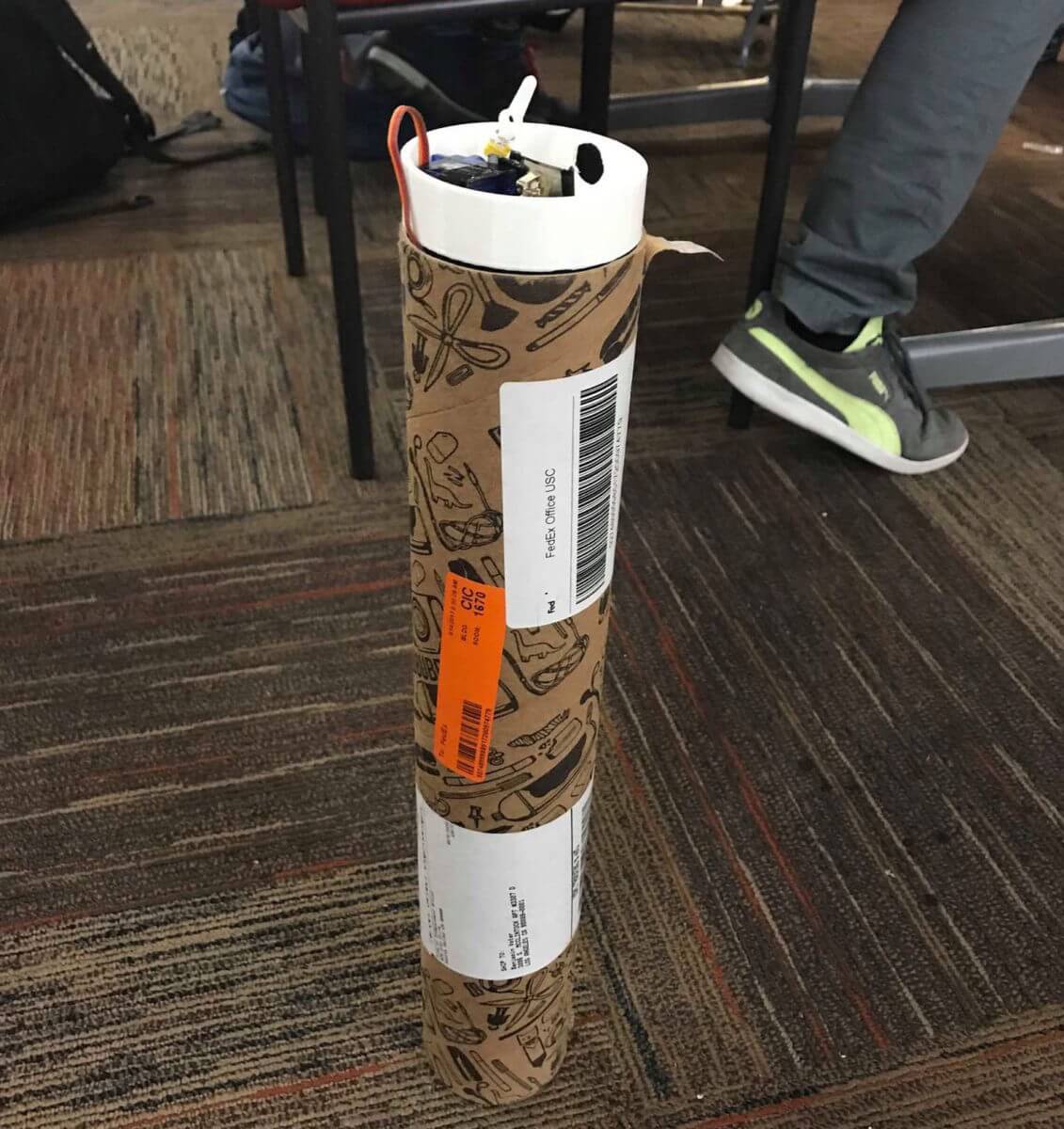
First Prize / People’s Choice: Vioturbe –
Efficient Bike Racks for Students on Campus
The team developed a smart bike rack that requires a student ID to lock and unlock, obviating the registration requirement and making it much easier to lock your bike safely. It uses an extendable chain that protrudes from a pole, goes through the bike, and locks back into the pole. If the chain is broken, campus security is alerted. The team also built a cloud-enabled platform that tracks the status of all the locks on campus and lets students access their bike locks remotely and check availability.
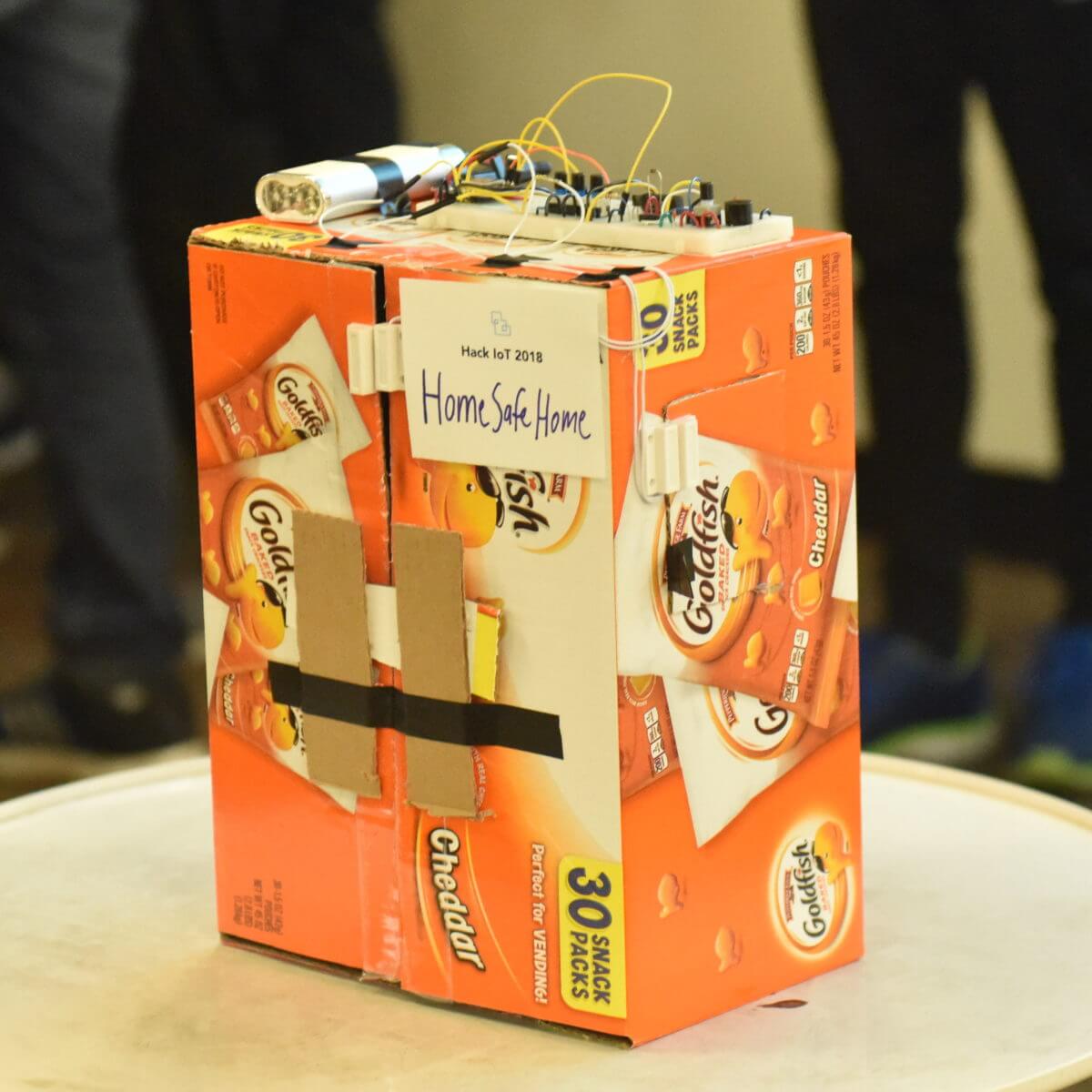
Second Prize: HomeSafeHome –
Using fast, highly-secure IoT technology to make sure your home is safe at an affordable price
This project monitors your door and window access, and monitors camera feeds. It is based on a secure, scalable Django server that will readily support additional plugins which can be rapidly developed and put on its network. The team maintains logs of all unknown access (faces in camera feed which are not recognized) and has break protection on all windows. The server frontend and android app displays all of this information, as well as a livestream to the cameras.
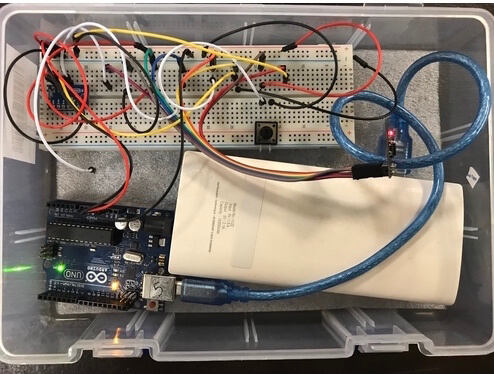
Third Prize: Buildozers –
Alexa, Ask Hack IoT Everything Right Now
This project allows you to to place an Alexa device anywhere within proximity of wifi and it will start keeping a log of values on a thingspeak channel. The team created a lambda function to access the Thing Speak API of our channel and fetch the latest data. This function is called from our Alexa skill which then is invoked by out invocation phrase.
For an entire list of participants and to learn more about all the projects, visit the Hack IoT website.
Published on April 5th, 2018
Last updated on April 5th, 2018













